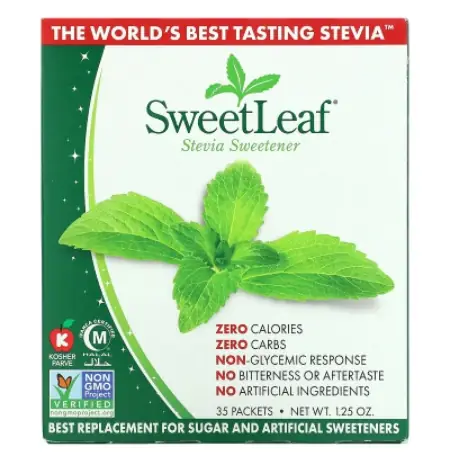Lime: Benefits for the Health That Are Worth Knowing

Wonderfully fragrant and pleasantly sour, limes are always a great choice. Lime: what benefits for the health does it have? Is it better than lemon? How do you prepare lime water?
Read on, and you will find the answers to all these and numerous other questions.

Lime: Health Benefits and Side Effects
Limes are particularly rich in two organic compounds: vitamin C (ascorbic acid) and citric acid.
Vitamin Content
Vitamin C is the only vitamin that lime contains in copious quantities: there is about 35% DV (daily value) of ascorbic acid per 100 grams (3.5 oz) of limes. Vitamin C is an important immunity booster that was demonstrated to reduce the severity and shorten the duration of colds. Thus, limes (and other citrus fruits) will be an excellent addition to your daily menu in the autumn and winter when the chances of catching a cold are especially high.
Still, such popular fruits as black and red currant, kiwifruit, and lemon as well as such vegetables as broccoli, kale, and bell pepper are even better sources of vitamin C. Thus, if you don’t really like limes, you can still get enough vitamin C from other foods.
While limes also contain B vitamins (B5 and B6), their quantities are small (about 4% DV).
Mineral Content
Limes are not particularly high in dietary minerals: iron is the only dietary mineral they are relatively rich in (5% DV). Still, lack of iron in the diet is one of the more frequent causes of anemia, and people who are on a vegan or vegetarian diet are at a greater risk of developing this condition as iron from plant-based foods is not as well absorbed as so-called heme iron you get from animal products.

Vitamin C and citric acid that limes (and their close botanical relatives lemons) are rich in are known to enhance the absorption of iron from plant sources. In a 2016 study people who drank a glass of lemonade alongside a plant-based meal demonstrated significantly (up to 70%) better iron absorption.
For this reason, if you eat such iron-rich plant-based foods as beans, hazelnuts, cashews, quinoa, potatoes, raisins, spinach, prunes (dried plums), and dried apricots, consume them with a large wedge or two of lime or lemon. Drinking homemade lime or lemon water (see the recipe below) can also be a great idea.
Caloric and Dietary Fiber Content
Limes are low in calories: there is no risk of gaining weight if you eat them regularly. It is worth mentioning, though, that the pulp (and rind) of this fruit contains large quantities of dietary fiber.
Dietary fiber cannot be digested: foods that are rich in it help you feel full for a longer time. They are an excellent choice if you are watching your waistline or trying to shed weight. What’s more, dietary fiber adds weight and volume to your stool and effectively prevents constipation. It also feeds good bacteria in your gut.
That said, there is almost no dietary fiber in lime water (as well as juice). To get the full health benefits of limes you need to eat them whole, not merely add their juice to your beverages.

Citric Acid
Lime juice is about 4.7% citric acid. This weak organic acid can help bone health. What’s more, numerous recent studies have demonstrated that citric fruits (like limes and lemons) can slow down (or even prevent) the formation of kidney stones.
Another important health benefit of citric acid is that it can help raise stomach acid levels in people with low stomach acidity (this condition is especially common in the elderly). This can aid stomach activity and prevent gas and bloating, which are known symptoms of slow digestion.
Flavonoid Content
Limes are rich in a flavonoid called hesperidin. Hesperidin is a natural antioxidant that is known to reduce the risk of cancer. In numerous in vitro (test-tube) studies citrus fruits suppressed the spread of various types of cancer, including colon, bone marrow, breast, lymphoma, throat, and pancreas cancers.
Lime: Benefits for the Skin and Hair
Although it is a well-known fact that vitamin C is unrivaled when it comes to boosting your immunity, ascorbic acid also serves numerous other important functions in the body:
- Improves iron absorption from plant sources, which is important for normal oxygenation of all your tissues, including skin and hair;
- Acts as a powerful antioxidant that protects your cells from free radicals and, among other things, delays the aging of the skin and helps your hair keep its luster;
- Takes part in the formation of collagen, a major constituent of the skin that makes it strong and firm;
- Required for tissue repair and can help your skin stay smooth and unblemished.

What’s more, smoking (both active and passive) leads to the depletion of vitamin C levels which in turn almost immediately results in dry and discolored skin. It is recommended that smokers and people exposed to secondhand smoke consume additional quantities of vitamin C to offset its depletion.
As limes are one of the better sources of ascorbic acid, regular lime eating offers immediate benefits for your skin and hair. What’s more, as limes are also rich in such powerful antioxidants as polyphenols, your skin gets an additional level of protection. In a 2016 animal study mice who regularly received a citrus-based juice mixture demonstrated increased collagen production and fewer wrinkles.
Heart Disease Risk Reduction
In a 2013 study rabbits who were fed with lime peels and juice demonstrated fewer signs of atherosclerosis (a disease in which plaques make your arteries narrow by attaching to their walls). As atherosclerosis is one of the leading causes of heart disease, it seems that regular consumption of limes can promote longevity.
Still, additional research on humans is required.
Side Effects of Limes
Citric fruits are very acidic, and eating many limes can increase your risk of cavities, as the acid can erode tooth enamel (the same goes for lemons). To be on the safe side, rinse your teeth thoroughly using clean water after enjoying your limes and lemons.
Some people are allergic to citrus fruits, which cause such symptoms as swelling, hives, and breathing difficulties. Seek medical help as fast as possible if this occurs.

Do not apply lime juice directly to your skin, as this can make it more sensitive to the ultraviolet rays from the sun and lead to inflammation.
Lastly, the high acidity of this fruit can provoke acid reflux after eating limes or drinking their juice. Symptoms may include difficulty swallowing, nausea, heartburn, and vomiting.
All in all, the health benefits of limes greatly outweigh their potential side effects.
FAQs
In this section you will find the answers to the most common questions about limes.
What Are the Health Benefits of Lime vs Lemon?
While lemons are almost twice as rich in vitamin C compared to limes, an average lime still contains about 20% DV ascorbic acid, which makes limes a viable source of this vitamin.
Although neither lemons nor limes are rich in all other vitamins and dietary minerals, both these fruits contain measurable amounts of iron (5% DV per 100 grams). Vitamin C and citric acid are known to promote iron absorption: as both lemons and limes are very rich in them, a higher percentage of iron you get from these fruits can be used by the body compared to various other fruits and vegetables.

Both fruits are very rich in such phytochemicals as polyphenols, tannins, and terpenes: powerful antioxidants that protect cells and delay aging. As their citric acid content is almost the same, they protect your kidneys from the formation of stones equally well.
From a botanical point of view, both these fruits are very close relatives. It is little wonder then, that they are almost identical in their benefits for your health: the result of the lime vs lemon game is really a draw.
What Are the Health Benefits of Lime Juice in Water?
Although this drink is sometimes touted as a cure-all and the best possible beverage for your health, this is, unfortunately, not the case. Still, while limited, health benefits of lime water should not be neglected.
First of all, this drink is a good source of vitamin C which is essential for your body in numerous ways. Second, lime water has a very pleasant acidic taste that helps you get hydrated. Last but not least, citric acid this drink is rich in slows down the formation of kidney stones and aids digestion (especially if your gastric acid levels have declined a bit, which is common among the elderly).

How to Make Lime Water
Simply squeeze your limes into a large pitcher and then add clean water. If you don’t need a lot of this drink, simply cut and squeeze a wedge or two into a cup of water.
On a hot day you might want to let your pitcher sit in the refrigerator for several hours to cool down (adding some ice to the pitcher is also a viable option) and furtherly boost the cooling effect of the drink by adding a few sprigs of mint. If you prefer sweeter drinks but don’t want to overload your body with sugar from honey or maple syrup, a non-caloric sweetener like stevia will be a much better choice for your health.

- Each packet is as sweet as 2 teaspoons of sugar
- 35 packets
- No bitter aftertaste
- Was manufactured using nothing but high-grade stevia leaves and pure water
You can also prepare a hot lime drink by adding the juice of the fruit to hot water. Keep in mind, though, that vitamin C decomposes much faster at high temperatures, so you might end up getting fewer quantities of ascorbic acid.
If your drinks are very acidic, it might be a good idea to thoroughly rinse your teeth using pure water after drinking them to protect the enamel of your teeth from potential damage.
Last but not least, here is a recipe for a detox drink that features lime. Benefits for the liver of drinks like these are truly enormous, and their preparation is incredibly quick and easy. Simply mix 12 fl oz (350 milliliters) of clean water with a handful of mint leaves, one or two wedges of lime, and 2 cups of cubed watermelon. Let your detox drink sit in the refrigerator for 3 hours or longer, and you are good to go.

What Happens if You Eat Lime Everyday?
So, what is lime good for health wise? This sour fruit can:
- boost your immunity;
- improve iron absorption from plant foods;
- promote skin and hair health;
- decrease risks of atherosclerosis and certain types of cancer;
- raise stomach acid levels;
- slow down (or even prevent) the formation of kidney stones;
- help bone health.
While there are numerous foods (like kiwis, lemons, and blackcurrant) that are even richer in antioxidants and polyphenols, it would be a mistake to neglect the benefits of limes for the body. Is lime healthy and good for the body? The answer is a resounding yes.

Now you know almost everything there is to know about lime. Benefits for the health of this sour fruit are truly substantial: rich in vitamin C and very good for iron absorption and digestion, it is a worthy addition to your daily menu. Then again, to maximize your vitamin and dietary mineral intake, consume a diet that is rich in all kinds of nuts, fruits, and vegetables.